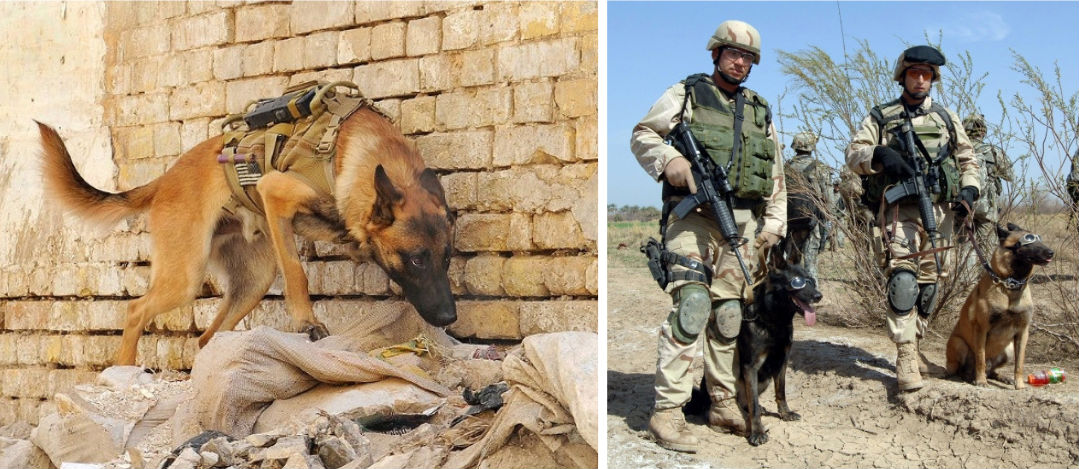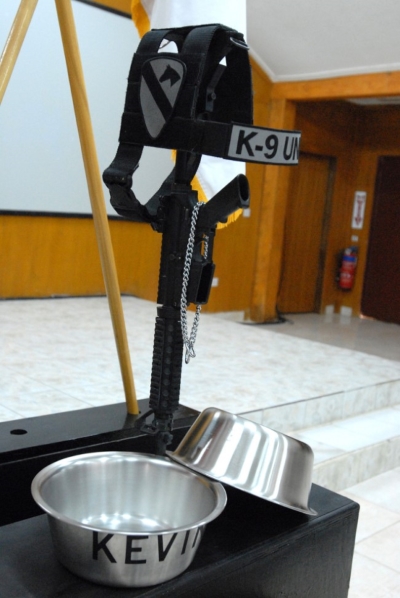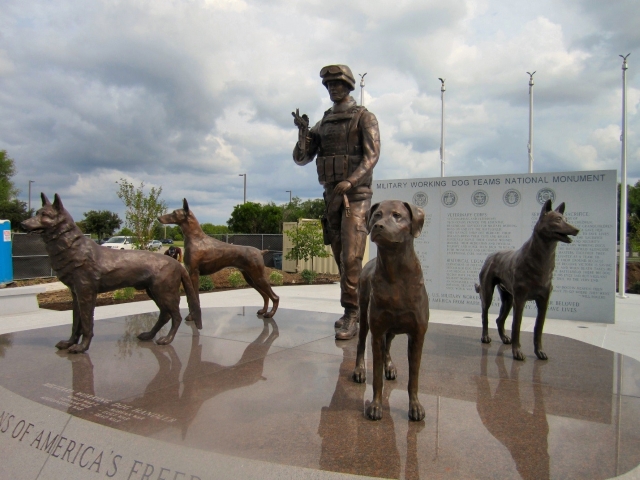
On Memorial Day, we remember those soldiers that gave the ultimate sacrifice for their country, and for us, the people of the United States. Only 0.4% of the U.S. population currently serves in the military. Looking back at everyone who has ever served, the number jumps up to 7.3%, but still a very low number given the great sacrifices the men and women of the military make for all of us. Maybe that is why, on Memorial Day — a day to remember those who have given the ultimate sacrifice for their country — the country celebrates with sales and shopping.
Putting that aside, there is also the less obvious soldier, one who also risks and gives their life for our freedom. A soldier that can’t speak for themselves. A brave soldier who too, is remembered this Memorial Day: the war dog.

Dogs have served in the military in every major conflict dating back to “Sergeant Stubby” of the 102nd Infantry who went from mascot to hero during WWI after being smuggled into battle by Private Conway. Stubby detected enemy gas, barked out warnings when enemy troops were near and located wounded soldiers on the battlefield.
Since then the role of the military dog has advanced and become much more sophisticated, planned, and trained for. Among the list of important and lifesaving positions these canine soldiers hold are:
- Sentry Dogs that work on a short leash and are taught to give warning by growling, alerting or barking
- Scout / Patrol Dogs that are trained to work in silence to aid in the detection of snipers, ambushes and other enemy forces
- Explosives Detection Dogs most recently introduced in the War on Terrorism. As a growing common threat is explosives hidden on a person, in a vehicle, or roadside location, Explosives Detection dogs are trained to alert on the scent of chemicals used in explosives. With their superior sense of smell it is very difficult to package explosives in a way a dog cannot detect. Explosives dogs have been deployed in the major wars in Iraq and Afghanistan and in many other locations for this purpose.
According to General David H. Petraeus, “the capability they (Military Working Dogs) bring to the fight cannot be replicated by man or machine.” He continues by explaining that “all measures of performance their yield outperforms any asset we have in our inventory. Our Army (and military) would be remiss if we failed to invest more in this incredibly valuable resource.”
If a dog of war is lost in combat, like their human counterpart, he or she is honored by the entire unit. Bowls are symbolically placed upside down and a poem called ‘Guardians of the Night’ is read in their honor.
Lackland Air Force Base in San Antonio, Texas, is home to a special monument set up to commemorate 4-pawed heroes and their handlers: the U.S. Military Working Dog Teams National Monument.
This Memorial Day, let’s remember these great dogs and their handlers who lost their lives, so that our dogs and their handlers (that would be us) may roam free in this great country.

